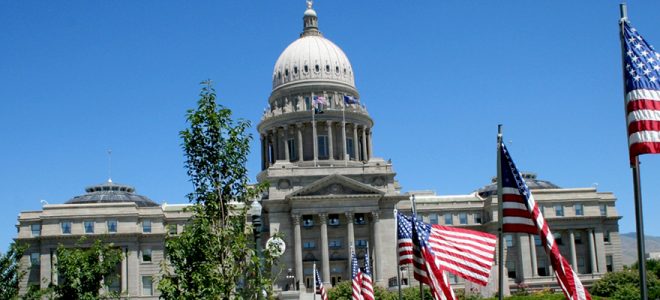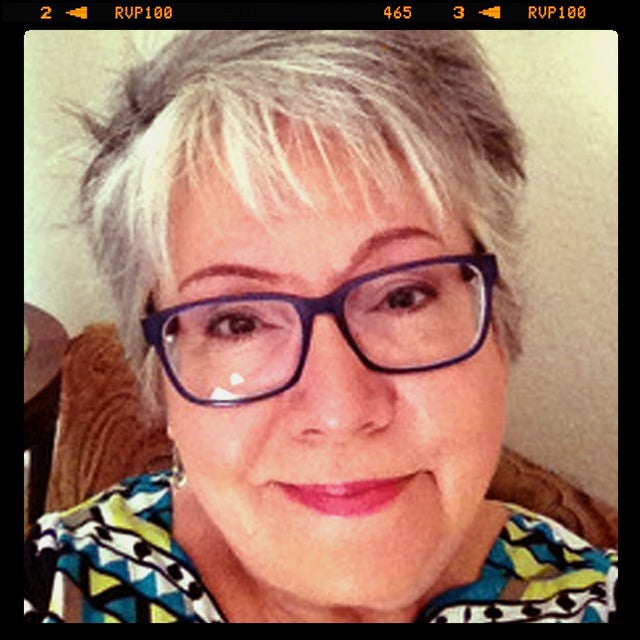

Elizabeth Ramsey is an assistant professor and librarian with responsibilities in outreach at Boise State University’s Albertsons Library. She is the liaison to programs in the School of Public Service, as well as the Center for Global Education. Her research interests include civic librarianship and issues related to diversity and inclusion in higher education.
Librarians are rolling up their sleeves, taking off their glasses, and pulling no punches in their efforts to ensure that Americans understand Democratic processes and the essential nature of community participation in those processes. By making the most of their positions as community centers and trusted information providers, libraries are bringing people together to learn about and discuss political issues face to face, empowering them to work collectively for their civil rights and the rights of others.
LIBRARIES AND THE COLLECTIVE GOOD
Library support for the collective good has been a given for tax-funded public libraries since their founding in mid-19th century America. At that time library missions were generally focused on the betterment of the locals through free access to educational materials. After World War I this gentle form of information activism gradually morphed into a more political movement. By the 1990s libraries were intervening on behalf of their patrons in relation to freedom of information, privacy rights, and equitable access to digital resources. This activism gained more strength after 9/11 in response to the Patriot Act when librarians started collaborating with the ACLU on the Library Freedom project to help patrons understand their rights to digital privacy.
While libraries continued to rally behind issues related to civil liberties, they also began acting as civic agents, creating opportunities for patrons to learn about and debate complex political issues. The 2016 election provided excellent motivation for unprecedented librarian outspokenness in relation to the importance of well-reasoned civic discourse and participation in democratic processes. These days, public and academic libraries promote constructive public deliberation of government matters by providing community spaces, programming, resources, instruction in media literacy and, above all, library staff with the values and training to facilitate constructive conversations about potentially divisive issues.
Libraries are natural spaces in which to engage in conversations on civic matters, supporting patrons by providing not only equitable access to information, but also safe spaces in which to do so. During times of unrest, libraries are havens; Ferguson Public Library stayed open and offered resources to help patrons during the Black Lives Matter protests. Libraries are also places to seek common ground. Sitting Bull College Library offered information to Dakota Access pipeline protestors and visitors as well as hosting a forum for the public.
Further, libraries foster informed participation in civil discourse through educational programming such as presentations on local issues or participation in national initiatives like the American Democracy Project. Libraries often collaborate with civic or educational organizations in creating programming; recently academic libraries have been partnering with the 1000+ strong coalition of the Campus Compact to foster conversations on college campuses on political issues. Locally, Albertsons Library worked with the Marilyn Shuler Human Rights Initiative to host Teach-Ins on topics such as Russian interference in the presidential election and the racist history of Idaho.
Libraries also support a deliberative democracy by fulfilling their basic, ongoing mission, ensuring equitable access to information. From their founding, tax-supported public and academic libraries have been regarded as trusted civic institutions essential to the support of an “informed and participative citizenry.” Even in this age of fake news, alternative facts, and hacked social media networks, library users believe in the institution’s ability to provide facts about their government and more. In fact, Americans trust libraries above other institutions, including the military, police, and the church according to a Pew Report.
NEUTRAL FACILITATORS FOR CIVIL DISCOURSE
Libraries provide not only the facts needed to understand and form sound opinions on government and other matters, but also assistance in parsing information for its usefulness and credibility. Media literacy is an essential skill in wading through the info-glut of our society, and libraries have taken on the task with gusto. Librarians work under a Code of Ethics which helps ensure their neutrality when assisting library users with information searches and other questions. Even when a library user is searching for information that is demonstrably false, such as denial of the Holocaust, a professional librarian will guide the user to question the assumptions underlying that opinion rather than judge the library user for that information need.
While librarian neutrality is essential when working at the reference desk as well as in library work managing space, programming and resources, recent research asserts that this work is, at its heart, deeply political. With their dedication to intellectual freedom, equitable access to information, and civil liberties, librarians are advocates for the common good, which, in some ways, puts them in opposition to some current government policies and politicians.
As part of their growing advocacy, librarians are also functioning as facilitators for civil discourse in the public sphere. In 2010 the American Library Association’s Center for Civic Life was created to help libraries foster civic engagement generally, as well as offering training for librarians to help their communities navigate public deliberations of political issues in a civil manner. This training for facilitators has been developed by the National Issues Forum, an organization known for its National Issues Framework and issue guides, which outline differing viewpoints. The facilitators’ training is part of a free learning series, Libraries Transforming Communities, organized by the ALA in collaboration with the National Coalition for Dialogue and Deliberation because “our divided nation needs conversation more than ever.”
In multiple and meaningful ways libraries continue their dedication to the transformative possibilities inherent in an informed and engaged citizenry. Libraries are promoting their activism through campaigns such as #LibrariesTransform, which aims to alter the image of libraries from “nice to have” to essential to a democracy. No longer the bespectacled shushers of popular media, librarians are outward facing collaborators, creating the means for their community members to engage with each other civilly across gaps in ideology, considering what the “common good” means to them, and how we all might come together to support it.